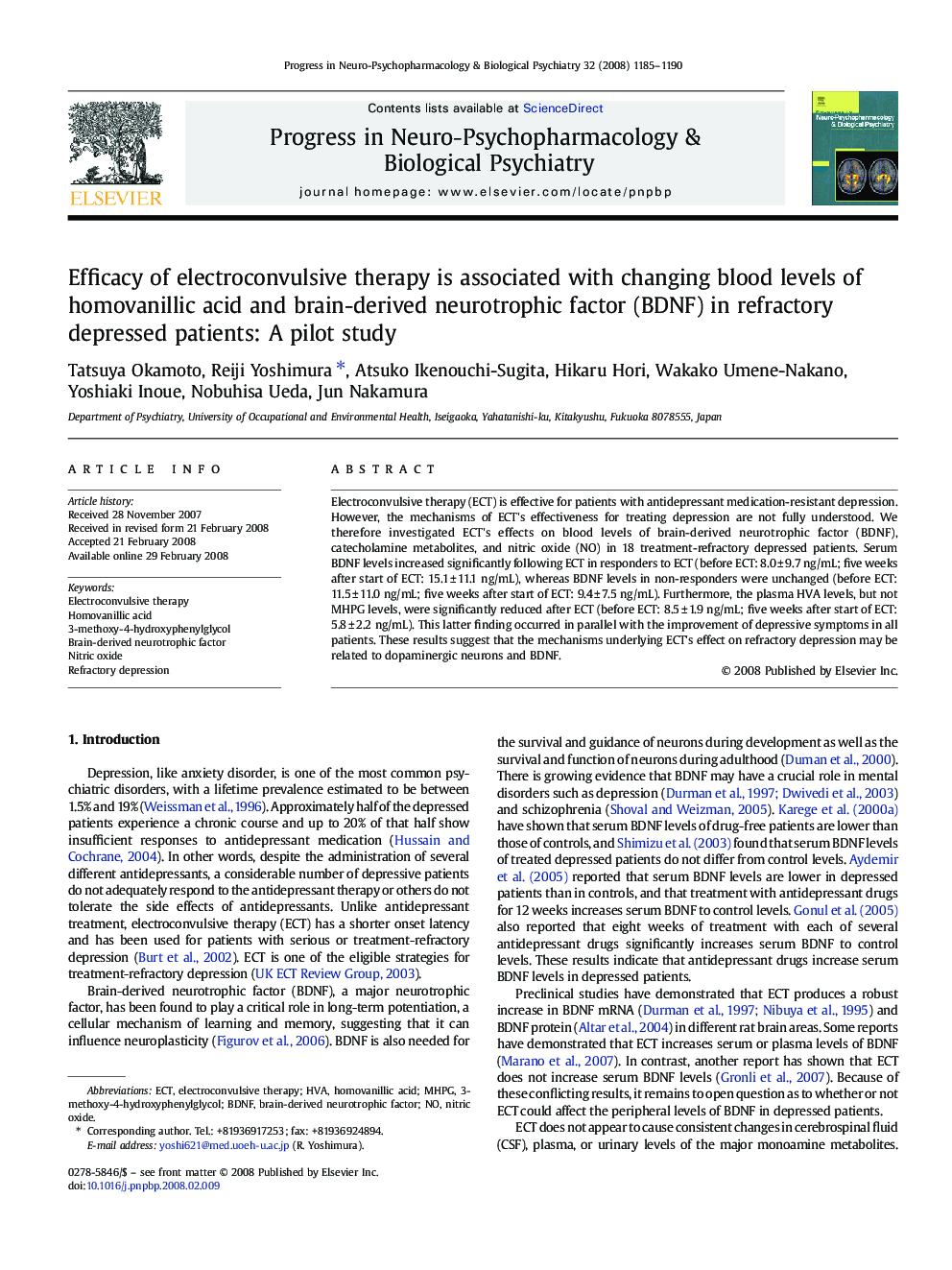| کد مقاله | کد نشریه | سال انتشار | مقاله انگلیسی | نسخه تمام متن |
|---|---|---|---|---|
| 2566576 | 1128086 | 2008 | 6 صفحه PDF | دانلود رایگان |

Electroconvulsive therapy (ECT) is effective for patients with antidepressant medication-resistant depression. However, the mechanisms of ECT's effectiveness for treating depression are not fully understood. We therefore investigated ECT's effects on blood levels of brain-derived neurotrophic factor (BDNF), catecholamine metabolites, and nitric oxide (NO) in 18 treatment-refractory depressed patients. Serum BDNF levels increased significantly following ECT in responders to ECT (before ECT: 8.0 ± 9.7 ng/mL; five weeks after start of ECT: 15.1 ± 11.1 ng/mL), whereas BDNF levels in non-responders were unchanged (before ECT: 11.5 ± 11.0 ng/mL; five weeks after start of ECT: 9.4 ± 7.5 ng/mL). Furthermore, the plasma HVA levels, but not MHPG levels, were significantly reduced after ECT (before ECT: 8.5 ± 1.9 ng/mL; five weeks after start of ECT: 5.8 ± 2.2 ng/mL). This latter finding occurred in parallel with the improvement of depressive symptoms in all patients. These results suggest that the mechanisms underlying ECT's effect on refractory depression may be related to dopaminergic neurons and BDNF.
Journal: Progress in Neuro-Psychopharmacology and Biological Psychiatry - Volume 32, Issue 5, 1 July 2008, Pages 1185–1190